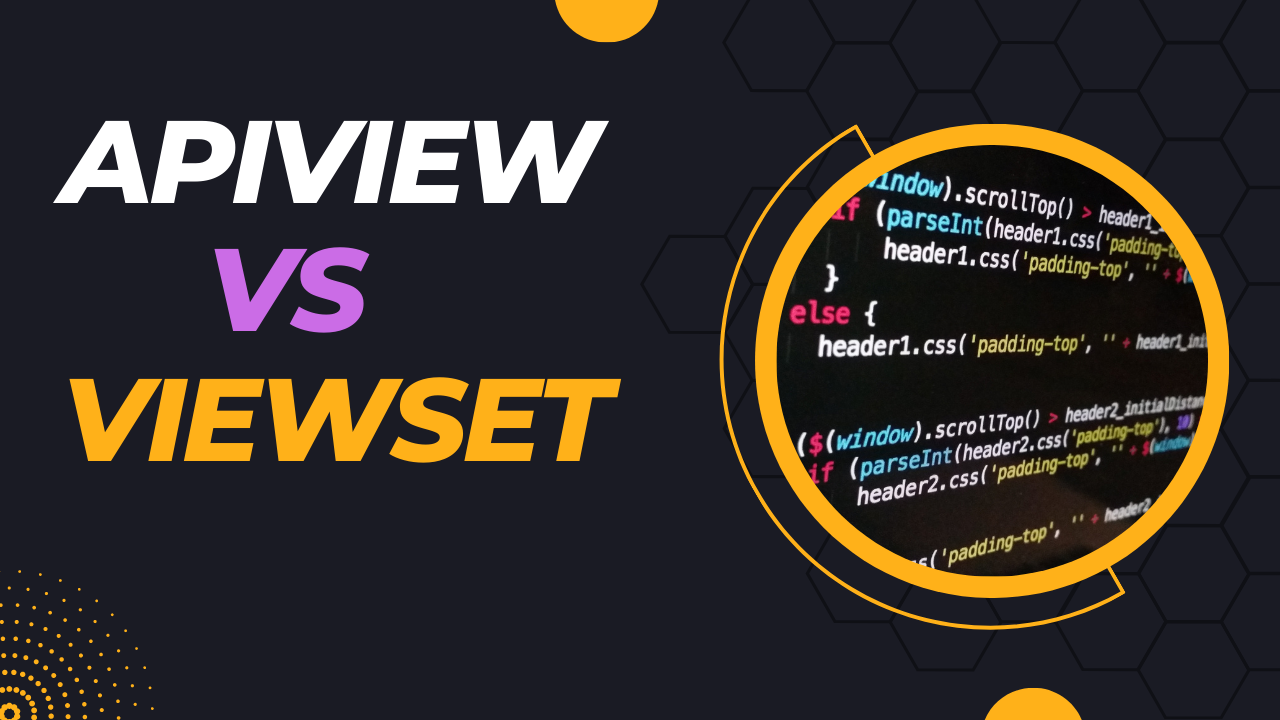APIView VS ViewSet In Django Framework
 Suraj Gupta
Suraj Gupta
Let's deep deeper into the differences between APIView and ViewSet in Django Rest Framework.
Granularity of Methods:
APIView: WithAPIView, you have full control over each HTTP method. You define separate methods such asget(),post(),put(),patch(), anddelete()to handle specific HTTP verbs. This allows you to have fine-grained control over the behavior of your API endpoints.ViewSet: In contrast,ViewSetcombines multiple HTTP methods into a single class. It provides predefined methods likelist(),create(),retrieve(),update(),partial_update(), anddestroy()that correspond to common CRUD operations. By overriding these methods, you define the behavior for each operation. This higher-level abstraction saves you from writing separate methods for each HTTP verb.
URL Routing:
APIView: When usingAPIView, you need to define your own URL patterns in yoururls.pyfile to map URLs to the respective methods of your view. You have explicit control over the URL configuration.ViewSet:ViewSetoffers automatic URL routing. You register yourViewSetwith aRouterclass, such asDefaultRouter, which automatically generates the URLs for your views based on the methods defined in theViewSet. This eliminates the need for manual URL configuration.
Consistency and Readability:
APIView: WithAPIView, the code for handling different HTTP methods is explicitly defined in separate methods. This can lead to more code duplication if similar functionality is required across multiple methods. It offers flexibility but may result in less concise and more repetitive code.ViewSet:ViewSetpromotes consistency and improves code readability. It encapsulates related functionality within a single class, making it easier to understand and maintain. Similar operations are grouped together in the predefined methods, reducing code duplication and promoting code reuse.
Additional Functionality:
APIView: SinceAPIViewprovides lower-level control, you have the flexibility to define additional methods and custom logic beyond the standard HTTP methods. This allows you to handle more complex scenarios that are not covered by the predefined methods.ViewSet:ViewSetoffers additional features such as actions and nested routing. Actions are custom operations that are not tied to a specific HTTP method, such as "like" or "comment" on a resource. Nested routing allows you to define hierarchical relationships between resources and handle them within the same view.
Choosing between APIView and ViewSet depends on the complexity and requirements of your API. If you need fine-grained control over individual HTTP methods, or if you have custom operations and require complete flexibility, APIView may be a suitable choice. On the other hand, if you prefer a higher-level abstraction, automatic URL routing, and consistent code structure for CRUD operations, ViewSet can simplify your API development.
Subscribe to my newsletter
Read articles from Suraj Gupta directly inside your inbox. Subscribe to the newsletter, and don't miss out.
Written by
